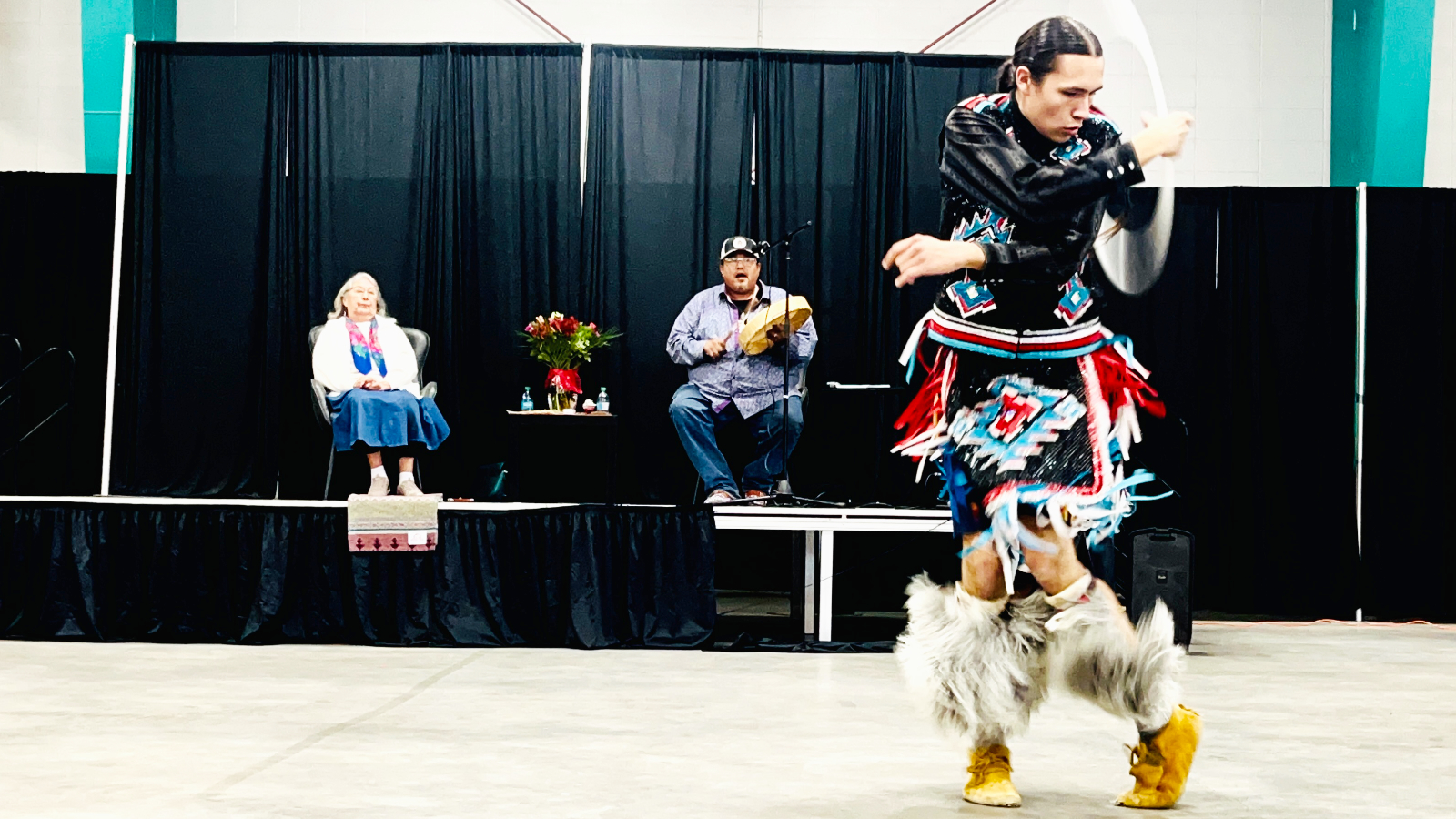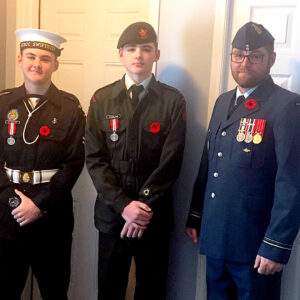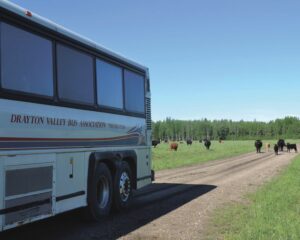Drayton Valley high school students had the chance to listen to a first hand account of an indigenous woman whose life was drastically altered by the Sixties Scoop.
Michaela Lewis is now a student at SAIT, but her road there was long and arduous. She told the students that she is enrolled in the Film and Video Production program, which she plans to use to create a documentary about her life.
“It wasn’t just my family that I lost,” said Lewis. “It was my culture, my traditions, my language, my identity.”
Lewis’ mother, Bernice, gave birth to her in the spring of 1979 in the Edmonton General Hospital, and at the time was on her own. Bernice was married to a non-indigenous man, which meant that she and her children had lost their treaty rights. At the time of Lewis’ birth, the husband was in prison. Lewis was not his biological child.
Hospital staff told Bernice that she couldn’t raise a child on her own.
“The nurses and the hospital staff forced my mother into signing me away,” said Lewis.
She said her mother just went along with everything they told her to do because she felt like she had no other option. After she left the hospital, she went and got her other daughter before returning to the hospital to get Lewis.
When Bernice returned the next day, the staff told her that Lewis had been given to social services and that she had to deal with them. Lewis’ mother was given the run around by social services for several weeks before finally hearing that Lewis had died.
Instead, Lewis had been adopted out to a non-indigenous family. Social services also took her older sister from her mother.
“My older sister was lost to the system by the age of five,” says Lewis.
As a result of losing both of her children, Lewis’ mother turned to substances to cope and became an addict. For quite some time, her mother was homeless because there was no support system for her.
At 18 years-old, Lewis was able to unseal her adoption records and began to search for her family. Eventually, Lewis was reunited with her mother, stepfather, three sisters, brother, and a large extended family.
Lewis’ adopted mother had told her that “those native mothers, they left their unwanted babies in garbage cans and they were all alcoholics and addicts.” Lewis was even told she likely had fetal alcohol syndrome. It wasn’t until later that she found out that was not true. Bernice told Lewis that she hadn’t told anyone about Lewis because she thought that a nurse had ended Lewis’ life at the hospital after she had left her there.
Lewis was shocked as nurses were respected health care providers. She had been raised to believe there was a system in place that prevented such things. She began looking into the history and learned about the residential school system and all of the children who had been taken from their families.
Bernice told Lewis not to bother with trying to get justice because she would get nowhere. Her mother had been in the Bow Valley Residential School, and after learning of its history, Lewis understood why her mother had believed a nurse had killed Lewis.
Then, history repeated itself.
“My oldest son was taken from me when he was four-years-old,” said Lewis. “In that horrific moment, I completely understood why my mother lived the life that she did.”
At the time, Lewis was a single mother attending college to get her high school diploma. She had aspirations of becoming an interior designer.
When her son was five months old, his father left Lewis and later began stalking her. He threatened to take her son. Her adopted mother told her that if Lewis gave custody of her son to her adoptive mother, his father couldn’t take him and Lewis could still have the boy live with her.
“Desperate to keep my child, I agreed to it.”
Lewis was stressed out with everything going on, so her stepfather suggested she come back to live with them and finish her schooling with the support of her family. Lewis agreed and notified her adoptive mother of her move.
That was when her adoptive parents came and took her son.
“I didn’t even have a chance to have a say in court.”
Lewis became suicidal. She was unable to go back to school or get her job back and she spiraled, eventually becoming an addict.
“I’ve never in my life felt so broken, defeated, and alone,” she said.
It was her stepfather who helped her to heal and become sober. She says he was supportive and told her that she didn’t have to let the same thing happen to her that happened to her mother. After the conversation with her stepfather, Lewis began working to placate her adoptive parents so she could see her son.
Ten years after her son was taken, Lewis stood up to fight for her oldest son. When her second son was born in 2014, she told her adoptive parents that they wouldn’t keep her children apart. She regained custody of her son, and has been raising her youngest son since his birth.













